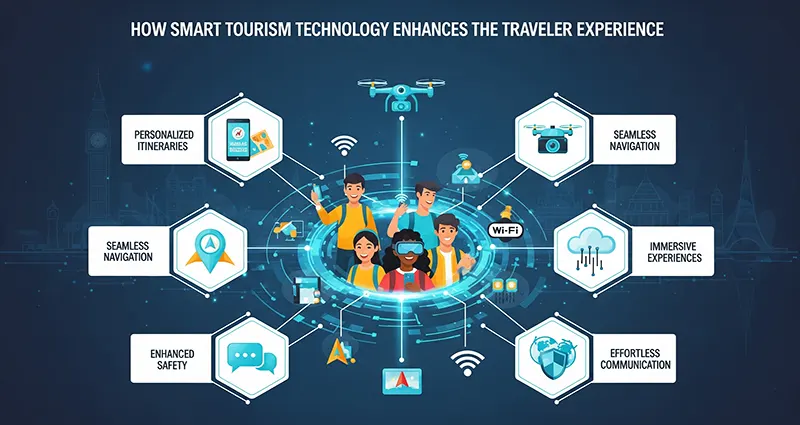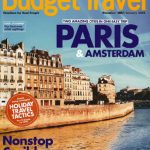The travel and tourism industry is undergoing a transformative evolution driven by the rapid advancement of smart tourism technology. These innovations—from artificial intelligence and Internet of Things (IoT) to augmented reality and big data analytics—are reshaping how travelers discover, engage with, and enjoy destinations worldwide. Understanding how smart tourism technology enhances the traveler experience reveals the exciting future of more seamless, personalized, and immersive journeys.
Personalized Travel Planning and Recommendations
Smart tourism technology harnesses the power of AI and data analytics to offer hyper-personalized travel experiences. By analyzing travelers’ preferences, past behaviors, and real-time data, AI-based platforms can recommend tailored itineraries, attractions, dining options, and accommodations. This level of personalization saves time and reduces decision fatigue, helping travelers create unique experiences that truly match their interests and needs.
Seamless Booking and Real-Time Updates
Gone are the days of endless phone calls and overwhelmed customer service desks. Smart tourism platforms integrate booking, payment, and confirmation processes into user-friendly mobile apps and websites. Furthermore, travelers receive real-time updates on flight statuses, gate changes, weather alerts, and local events, ensuring they stay informed and can adjust their plans accordingly. These intelligent systems dramatically reduce travel stress and improve overall convenience.
Enhanced On-Site Experiences with IoT and AR
Smart tourism technology extends beyond planning into enhancing experiences at the destination. IoT devices connected across smart cities and attractions provide travelers with services like digital ticketing, contactless payments, and interactive maps. Augmented reality (AR) applications bring history and culture to life by overlaying digital content, such as virtual guides and 3D reconstructions, onto physical sites. These technologies deepen engagement and create memorable, interactive visits.
Efficient Crowds and Resource Management
Using big data and AI, tourism operators can monitor visitor flows and manage crowds to optimize comfort and safety. Smart sensors collect information on crowd density at landmarks, public transport stations, and events. This data allows authorities to implement dynamic crowd control, reducing wait times and congestion. For travelers, this means more enjoyable experiences and better access to popular attractions without the frustration of overcrowding.
Multilingual and Accessible Support
Smart tourism apps often incorporate natural language processing and voice recognition, offering real-time multilingual support and translation services. This breaks down language barriers, enabling travelers to communicate easily, understand local information, and navigate new environments confidently. Additionally, these technologies improve accessibility by providing assistance to travelers with disabilities, ensuring inclusive experiences for all.
Sustainable and Eco-Friendly Travel Choices
With growing awareness of environmental impact, smart tourism technology promotes sustainable travel practices. By monitoring energy usage, waste management, and resource consumption, smart systems help destinations minimize ecological footprints. Travelers also receive recommendations for eco-friendly accommodations and activities, empowering them to make responsible decisions that support sustainability without compromising enjoyment.
How smart tourism technology enhances the traveler experience lies in its ability to blend personalization, convenience, interactivity, and sustainability into every stage of the journey. From planning and booking to exploring and engaging with local culture, these innovations make travel more intuitive, enjoyable, and meaningful. As technology continues to advance, travelers can look forward to increasingly seamless and enriched experiences that connect them more deeply with the world around them. Smart tourism is not just the future—it is the new reality of travel.








